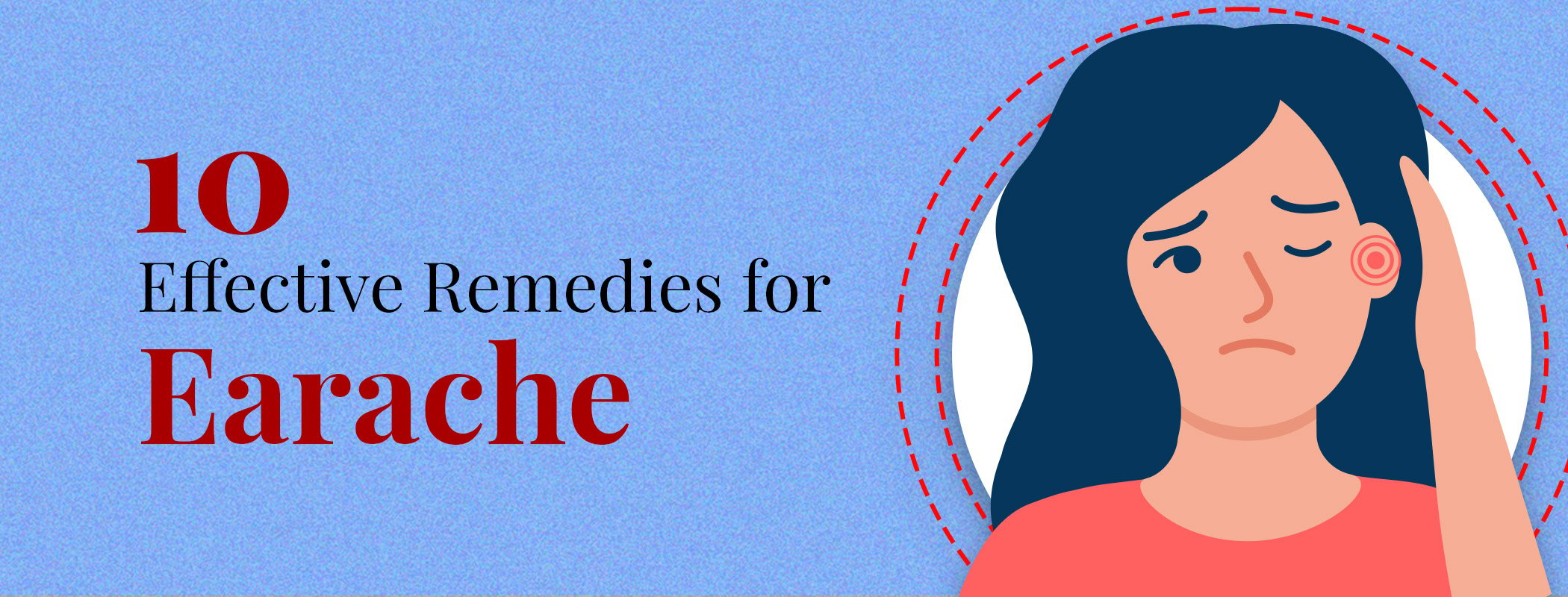How to get rid of ear pain
May 24, 2023

What is an Earache?
An earache refers to pain or discomfort in the ear, which can range from mild to severe. It is usually a symptom of an underlying condition affecting the ear, such as an infection or inflammation. The pain may originate from the outer, middle, or inner ear and can sometimes radiate to the jaw or neck.
Causes of Earaches
Earaches can have various causes, including:
- Ear infections (otitis media): Bacterial or viral infections commonly affect the middle ear, leading to inflammation and pain.
- Swimmer’s ear (otitis externa): Moisture in the ear canal creates an ideal bacterial or fungal growth environment, causing infection and earache.
- Sinus infections: Inflammation and congestion in the sinuses can create pressure and pain in the ears.
- Allergies: Allergic reactions can cause the ear passages to become swollen and result in earaches.
- Eustachian tube dysfunction: When the Eustachian tubes fail to equalize pressure in the middle ear properly, it can lead to pain.
- Foreign objects: Inserting objects into the ear can cause irritation, infection, and earaches.
Symptoms of an Earache
Earache symptoms may vary depending on the underlying cause, but common signs include:
- Sharp or dull pain in one or both ears
- Aching or throbbing sensation
- Itching or irritation in the ear canal
- Hearing loss or muffled hearing
- Discharge or fluid draining from the ear
- Fever or general discomfort
- Headache or dizziness
Home Remedies for Earaches
-
Warm Compress
- Take a clean cloth and soak it in warm water.
- Squeeze out the excess water and place the warm cloth against the affected ear.
- The warmth will help soothe the pain by increasing blood circulation and reducing inflammation.
2. Garlic Oil
- Garlic possesses natural antimicrobial properties that can help combat ear infections and reduce pain.
- Warm a few drops of garlic oil or crush a fresh garlic clove and mix it with olive oil.
- Using a dropper, put a few drops of the mixture into the affected ear and let it sit for a few minutes before draining it out.
3. Onion Compress
- Onions have natural antibacterial and anti-inflammatory properties that can provide relief from earache.
- Chop a fresh onion and microwave it for a short duration until it becomes warm.
- Wrap the warm onion in a clean cloth and hold it against the ear for 5-10 minutes.
- The onion’s warmth and beneficial properties can help alleviate pain.
4. Tea Tree Oil
- Tea tree oil is known for its antimicrobial and anti-inflammatory properties.
- Dilute a few drops of tea tree oil in a carrier oil, such as olive oil or coconut oil.
- Use a clean dropper to put a few drops of the mixture into the affected ear and let it sit for a few minutes before draining it out.
- Note: Do not apply undiluted tea tree oil directly to the ear canal.
5. Hydrogen Peroxide
- Hydrogen peroxide can help remove excessive earwax that may be causing discomfort and contributing to an earache.
- Tilt your head to the side and use a dropper to put a few drops of hydrogen peroxide into the affected ear.
- Allow it to bubble and break down the earwax for a few minutes, then tilt your head in the opposite direction to drain out the solution and wax.
- Use this remedy with caution and only if you suspect excessive earwax is the cause of your earache.
6. Warm Water Rinse
- Fill a clean bulb syringe with lukewarm water.
- Tilt your head to the side and gently squeeze the bulb syringe to release a gentle stream of water into the affected ear.
- This method can help remove debris or excess earwax that may be causing discomfort.
- Be careful not to use excessive force or use this method if you suspect an eardrum perforation or active infection.
7. Breast Milk
- Breast milk can offer natural pain relief for infants suffering from earaches and help fight infections.
- Express a few drops of breast milk and use a clean dropper to put a few drops into the affected ear.
- Breast milk contains antibodies that can help combat infections and reduce inflammation.
8. Chewing or Yawning
- Gently chewing gum or yawning can help equalize the pressure in the ears, particularly if the earache is due to Eustachian tube dysfunction or changes in altitude.
- These actions stimulate the muscles responsible for opening the Eustachian tubes, promoting pressure equalization and alleviating discomfort.
9. Rest and Relaxation
- Giving your body ample rest and relaxation can aid in the healing process.
- Avoid exposing yourself to loud noises, excessive cold, or other environmental factors that may aggravate the earache.
- Create a calm and quiet environment to help alleviate discomfort and promote recovery.
When and Who to Consult
While home remedies can offer temporary relief, it is crucial to seek medical attention in certain situations:
- Severe or worsening pain that persists for more than a day.
- High fever accompanied by ear pain.
- Drainage of fluid or blood from the ear.
- Loss of hearing or decreased hearing ability.
- Persistent dizziness or vertigo.
- Earache in an infant or young child.
- Existing medical conditions or a weakened immune system.
Consult a healthcare professional, such as a primary care physician or an ear, nose, and throat specialist (otolaryngologist), who can evaluate the symptoms, diagnose the underlying cause, and recommend appropriate treatment.
Conclusion
Earaches can be both painful and disruptive, but there are steps you can take to find relief. Home remedies, such as warm compresses, pain relievers, and ear drops, can help alleviate symptoms. However, it is essential to consult a medical professional if the pain persists, worsens, or is accompanied by other concerning symptoms. By understanding the causes, recognising the symptoms, and knowing when to seek medical attention, you can effectively manage earaches and promote ear health.
People also ask
1. How long will ear pain last?
The duration of ear pain can vary depending on the cause. In many cases, ear pain may improve within a few days. However, if the pain persists or worsens, it is important to seek medical attention to determine the underlying cause and receive appropriate treatment.
2. How can I make my earache go away?
To help alleviate an earache, you can try the following measures:
- Apply a warm compress or heating pad to the affected ear for 10-15 minutes.
- Avoid exposing your ears to irritants like smoke or loud noises.
- Maintain good hygiene by keeping your ears clean and dry, and avoid inserting objects into your ears.
- If you suspect a wax buildup, consult a healthcare professional for guidance on safe earwax removal methods.
3. What relieves ear pain fast?
While there is no guaranteed method to relieve ear pain instantly, some strategies that may provide fast relief include:
- Over-the-counter pain relievers: Medications like acetaminophen or ibuprofen can help reduce pain and inflammation relatively quickly.
- Applying a warm compress: Placing a warm compress or heating pad on the affected ear can provide temporary relief by improving blood circulation and reducing pain.
- Using ear drops: Over-the-counter ear drops specifically designed for ear pain relief may provide fast-acting relief. Follow the instructions on the packaging or consult a pharmacist for guidance.
4. Can you put Vicks in your ear?
Applying Vicks or any similar products directly into your ear is not recommended. These products are not formulated for use in the ear and may cause irritation or damage to the delicate structures of the ear. It is always best to follow the instructions provided by the manufacturer or consult a healthcare professional for appropriate earache remedies








